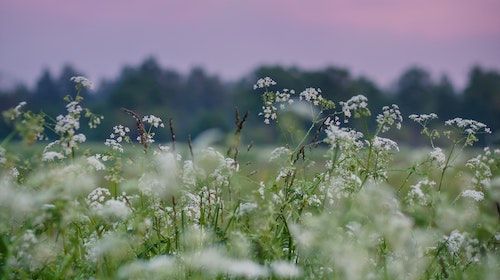
27 August 2021
On Thursday, England’s Environment Agency published a regulatory position statement (RPS) to apply organic manure to agricultural land. If the conditions outlined are followed, land managers can plan to apply organic manure to agricultural land that may exceed the needs of the soil or crop on that land, as long as it does not cause pollution. Concerns have been raised in the past over the lack of enforcement of such regulations.
The Scottish Ecological Design Association has published a new report entitled ‘A New Vision for Land Use in Scotland - 6 Conversations’. The report includes a discussion on ‘Soil and Growth’, focusing on the impact economic demands and the agrochemical industry have had on Scotland’s soils and highlighting the social, economic and environmental opportunities present in promoting soil health.
A recent survey by the Royal Horticultural Society reveals that almost two-thirds of gardeners in the UK still buy peat compost. According to the survey, the cost and availability of peat-free compost have stopped some gardeners from making the switch.
The UN Biodiversity Conference in China due to take place in October this year will be delayed for a third time and moved to April 2022. This week, UN negotiators have resumed work on the text for the Global Biodiversity Framework which will no longer be agreed on this year. The draft Framework aims to conserve at least 30% of the world's land and oceans.
Tesco and WWF have launched a new trial scheme that offers dairy farmers in the UK subsidies to encourage them to grow feed for their livestock that is more sustainable. The scheme will provide 15 farmers with an 80% seed subsidy to plant herbal leys, a soil-enriching grass mix that can help increase on-farm biodiversity and enhance soil health and water quality.
Another article, this time in Forbes, explores the recent trend in regenerative agriculture (farming and grazing practices that restore degraded soil, improve biodiversity and increase carbon capture in the soil). The author argues that the next step in the transition to regenerative agriculture is certification and encourages retailers to pay closer attention to how this trend will affect their businesses.
A recent research paper questions which farming system promotes the highest ecosystem multifunctionality and demonstrates that there is no simple answer. Whilst organic farming promotes biodiversity, reduces soil erosion by 50% and ecotoxicity by 81%, increases soil life by 28%, and ensures a higher income per hectare, it produces 22% less yield.
Researchers at Washington State University have developed a way to assess soil health by measuring the electric current produced by soil microbes. This research could someday lead to a simple and real-time test for farmers to determine whether their soil is productive.
An article in the Guardian explores the recent rise of weed-killing robots in the US. This recently developed machinery can have several advantages including environmental benefits such as helping to reduce soil disturbance, which can contribute to erosion, and allow farmers to reduce or eradicate the use of herbicides.
Scotland’s Rural College (SRUC) has launched a UK children’s art competition (deadline September 1st). To enter, young artists must illustrate a frame that will inspire people to take photos of earthworms. The winner and runner ups will receive book prizes and the winning design will be used for the Autumn 2021 farmland earthworm survey. Find more information here.